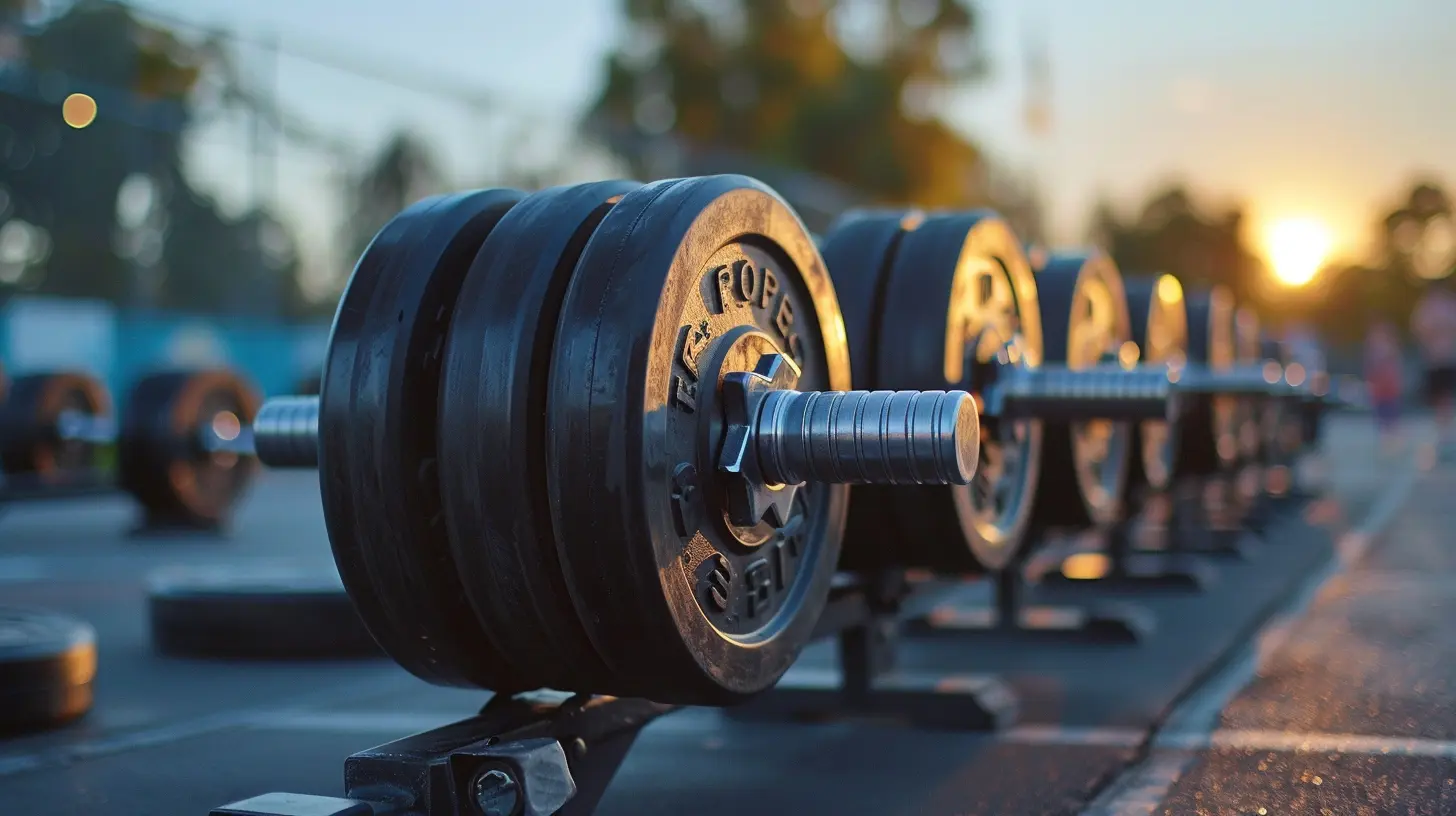Strength Training Essentials for Better Running
6 November 2025
Running is more than just putting one foot in front of the other—it's a full-body effort. If you want to run faster, longer, and with fewer injuries, strength training is non-negotiable. Whether you're a weekend jogger or a seasoned marathoner, incorporating targeted strength workouts can make a world of difference.
Let’s break down the key strength training essentials that will take your running performance to the next level. 
Why Runners Need Strength Training
Many runners mistakenly believe that strength training will make them bulky or slow them down. In reality, the opposite is true. Strength training enhances running economy, improves endurance, and helps prevent injuries.Think of your body as a car. Your muscles are the engine, your joints are the suspension system, and your core is the chassis holding everything together. If any part is weak, your performance suffers, and breakdowns (injuries) become inevitable.
Here’s why strength training is a game-changer for runners:
- Improved Running Efficiency – Stronger muscles generate more power with less effort.
- Injury Prevention – Strength training corrects muscle imbalances and protects joints.
- Enhanced Endurance – Stronger legs and core muscles delay fatigue.
- Better Speed & Explosiveness – Strength work translates directly to improved sprinting ability.
Now, let’s dive into the essential strength training exercises every runner should include in their routine. 
The Core of Strength Training for Runners
Strength training for runners isn't just about lifting heavy weights. It’s about targeting the key muscles that power your stride, stabilize your movement, and reduce impact stress.1. Leg Strength – The Powerhouse of Running
Your legs do most of the work when you’re running, so strengthening them is a must.Key Exercises:
- Squats – Build overall leg strength and engage multiple muscles.- Lunges – Improve balance, stability, and single-leg strength.
- Deadlifts – Strengthen hamstrings, glutes, and lower back to prevent injuries.
- Calf Raises – Enhance ankle stability and strengthen lower leg muscles.
2. Core Strength – The Secret to Stability
A strong core acts like a bridge connecting your upper and lower body, ensuring efficient movement and preventing energy wastage.Key Exercises:
- Planks (Front & Side) – Engage the entire core and improve posture.- Russian Twists – Strengthen obliques for better rotational control.
- Leg Raises – Target lower abdominal muscles crucial for running posture.
- Bird Dogs – Improve coordination and core stability.
3. Hip & Glute Strength – The Hidden Force Behind Speed
Weak hips and glutes are often the root cause of knee pain and poor running form. Strengthening these muscles prevents injuries and boosts speed.Key Exercises:
- Glute Bridges – Activate and strengthen the glutes for better propulsion.- Clamshells – Improve hip stability and reduce injury risk.
- Hip Thrusts – Boost power and endurance in glute muscles.
- Resistance Band Lateral Walks – Strengthen hip abductors for better alignment and stride efficiency.
4. Upper Body Strength – The Support System
While running is leg-dominant, your arms and shoulders help with balance and momentum. A strong upper body prevents slumping and improves overall endurance.Key Exercises:
- Push-Ups – Develop shoulder and chest strength.- Pull-Ups – Strengthen upper back and arm muscles.
- Rows – Improve posture and prevent hunching while running.
- Overhead Presses – Enhance shoulder stability and arm drive.

How to Incorporate Strength Training Into Your Running Routine
Striking the right balance between running and strength training is key. Overdoing one can lead to fatigue, while neglecting the other stunts progress.Here’s a practical way to fit strength training into your schedule:
1. Schedule Strength Sessions Wisely
- 2-3 days per week is enough to see noticeable improvements.- Strength train on non-running days or after short, easy runs to avoid excessive fatigue.
2. Prioritize Form Over Heavy Weights
- Proper technique is more important than lifting heavy. Poor form leads to injuries.- Start with bodyweight exercises and gradually add resistance.
3. Keep It Functional
- Focus on compound movements that mimic running mechanics.- Avoid isolated exercises that don’t translate to running performance.
4. Include Plyometrics for Explosiveness
- Plyometric exercises like box jumps, bounding, and jump squats improve power and speed.- Add 1-2 plyometric drills per session for best results.

Common Strength Training Mistakes Runners Should Avoid
Even seasoned runners can fall into some common strength training traps. Here’s what to watch out for:1. Ignoring Lower Body Strength
- Some runners avoid leg workouts to prevent soreness, but strong legs equal stronger runs.2. Lifting Too Heavy Too Soon
- Gradual progression is key. Overloading too quickly increases the risk of injury.3. Neglecting Core & Hip Strength
- Weak hips and a weak core lead to poor running form and injuries.4. Skipping Mobility Work
- Strength training without mobility exercises leads to stiffness, reducing running efficiency.Final Thoughts
Strength training isn’t just for bodybuilders—it’s essential for runners of all levels. Whether you’re aiming for a new personal best or just want to run injury-free, adding strength workouts to your routine is a game-changer.By strengthening your legs, core, hips, and upper body, you’ll build endurance, efficiency, and power—everything you need to become a stronger, faster, and more resilient runner.
So, lace up those running shoes, grab some weights, and start reaping the benefits of a well-rounded training plan!
all images in this post were generated using AI tools
Category:
Running TipsAuthor:

Holly Ellison
Discussion
rate this article
1 comments
Farrah Graham
Strength training is crucial for runners as it enhances muscular endurance, improves running form, and reduces injury risk. Incorporating exercises like squats, lunges, and core workouts can significantly boost performance and efficiency, making your runs more effective and enjoyable overall.
November 9, 2025 at 3:42 AM

Holly Ellison
Absolutely! Strength training is key for runners, as it builds endurance, improves form, and lowers injury risk. Exercises like squats and lunges are essential for boosting performance and enjoyment in running.


